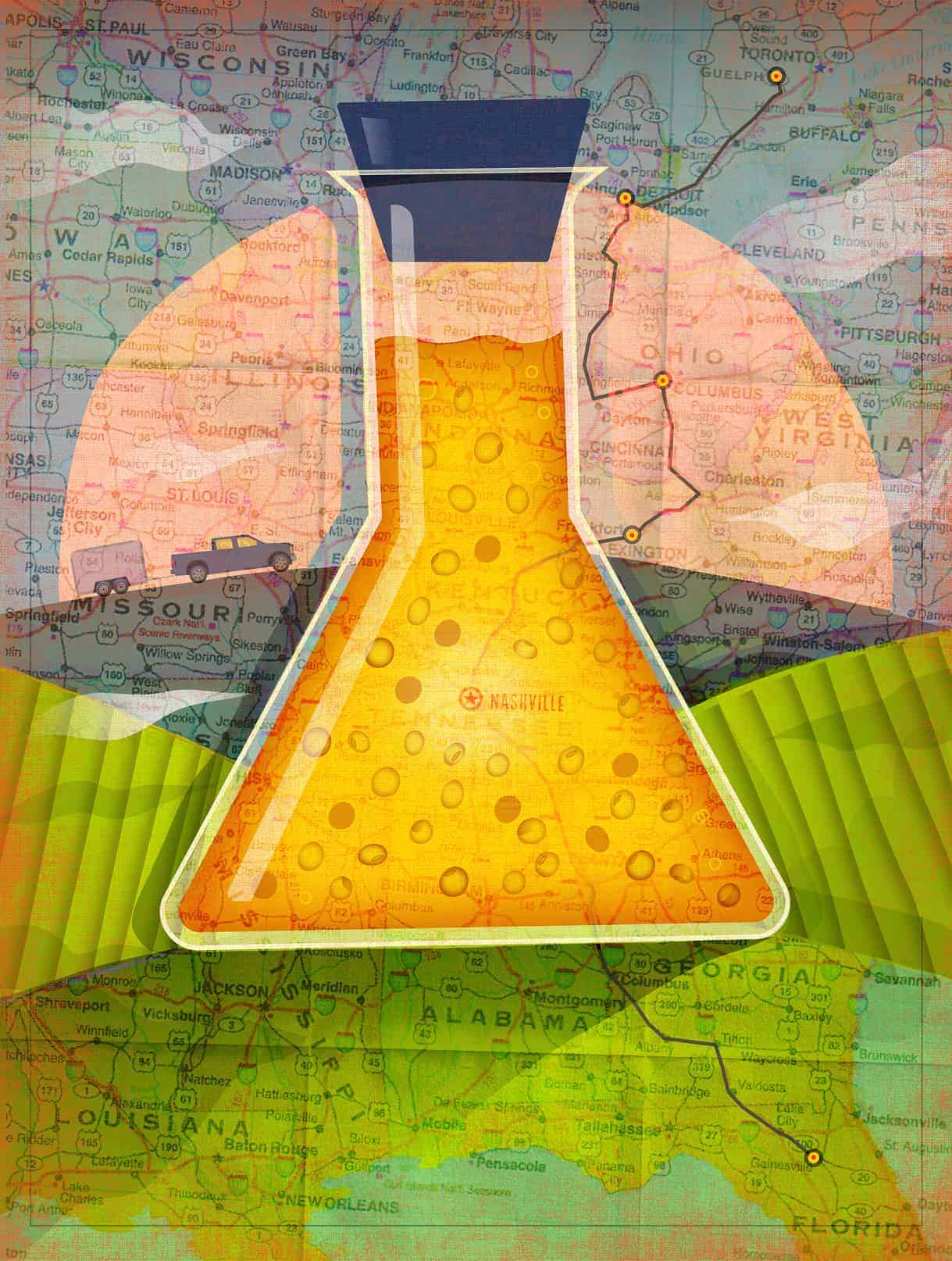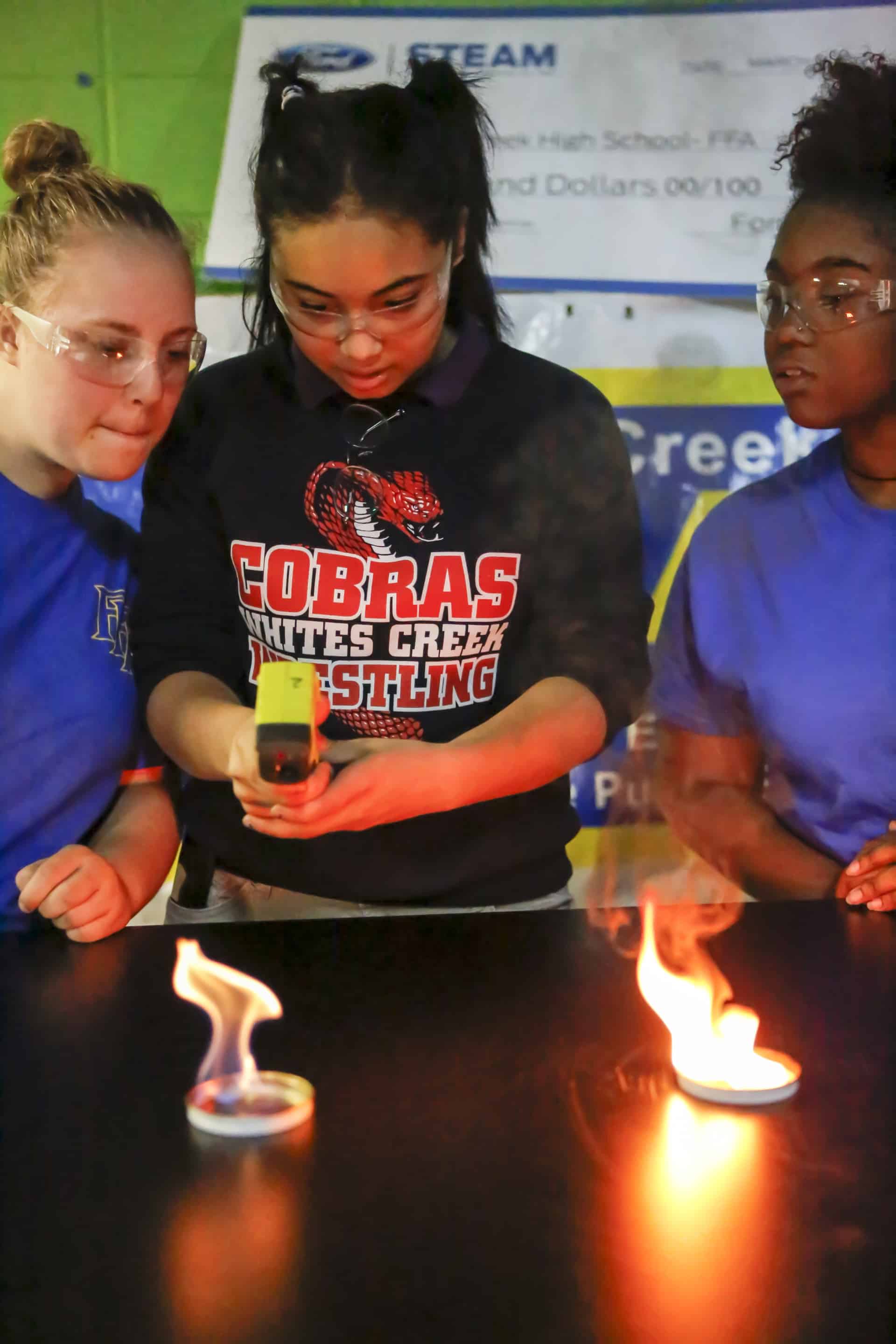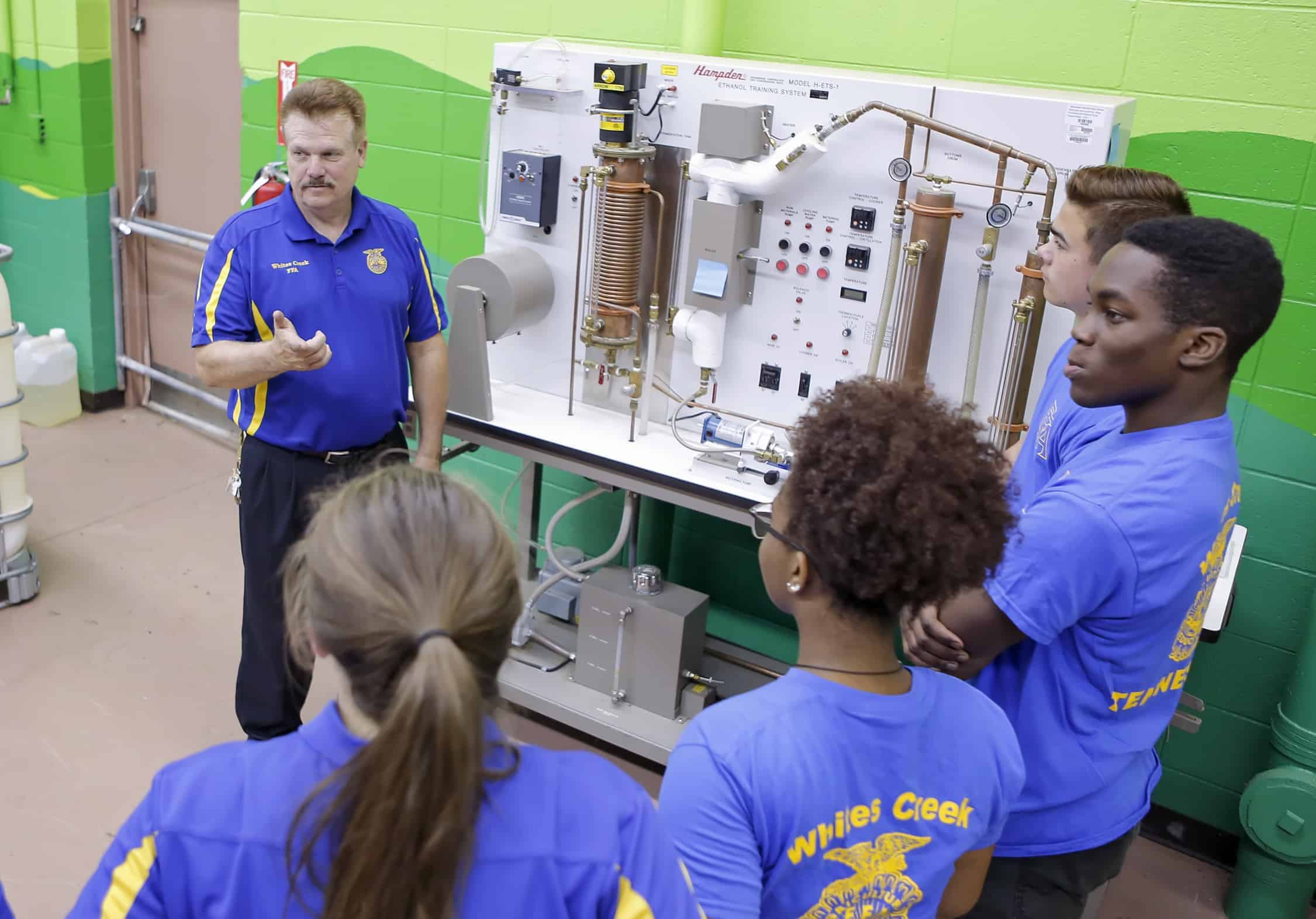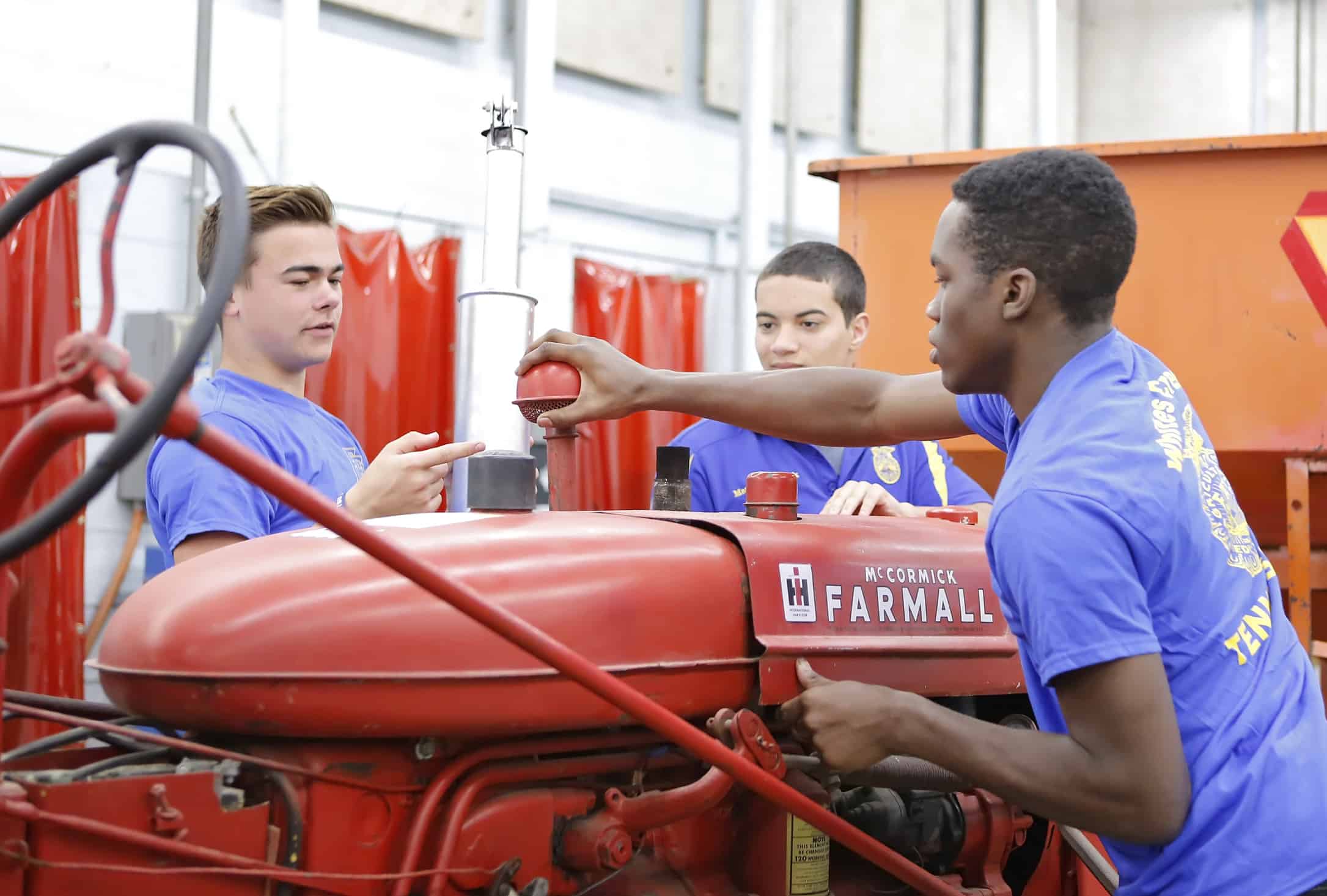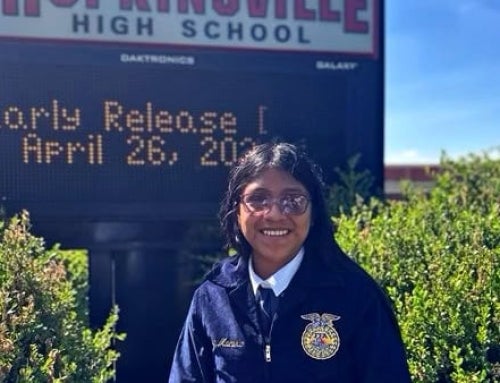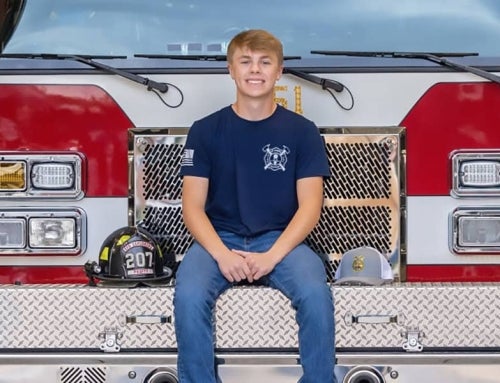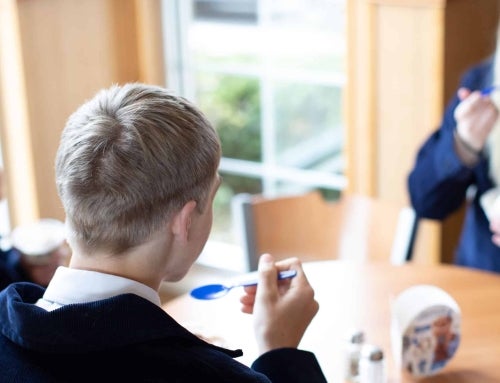With her blue-tinted hair pulled into a loose topknot and proudly wearing a school-mascot sweatshirt, FFA member Gabby Kendrick could be any teenager in any high school in any town in America.
Well, not quite.
That’s because, at this moment, Kendrick has traded LOLs and emojis for words like hydrogen, nuclear energy, biodiesel and greenhouse gas emissions. She sounds more like a master’s student than a teenager, but that’s to be expected. As one of 38 FFA members enrolled in the award-winning Whites Creek Alternative Energy Academy in Nashville, Tenn., Kendrick is not alone in her passion for energy conversion.
“These kids are awesome,” says Dr. Garry Gibson, Whites Creek FFA advisor. “We are a city school, so most of these kids don’t have a farm background. But they love the program. They would bleed blue tomorrow. They love FFA.”
The only program of its kind in the U.S., the Whites Creek FFA alternative energy program introduces high school students – most of whom have never considered agriculture – to the world of alternative energy. The four-year program prepares students for a future in this fast-growing, high-paying industry.
A Renewable Playland
The program began when Dr. Gibson, a graduate of The Ohio State University with a doctorate in agricultural education and more than 25 years of experience under his belt, started teaching at Whites Creek High School in 2014. Students in the program study several energy sources including solar and wind energy, ethanol and biodiesel production, geothermal, hydroelectric, nuclear and fossil fuels. Each student enrolls in four main classes: agriscience, introduction to alternative energy, greenhouse management and advanced alternative energy production.
Adding to the program’s uniqueness, students grow soybeans to produce their own biodiesel, which they use to power everything from cars and trucks to tractors and go-karts. The city of Nashville allows the program to use an 8-acre community garden plot near the school.
On 4 acres, students grow vegetables. In the last two years, the chapter has grown over 12,000 pounds of produce that is given to those in need in the community. The other 4 acres are used to grow varieties of soybeans. A local farmer harvests the soybeans, which are then taken into the school’s lab, pressed into oil and processed into biodiesel.
“This is how we get back to agriculture. We make the fuels from renewable plant sources that farmers can grow,” Dr. Gibson says.
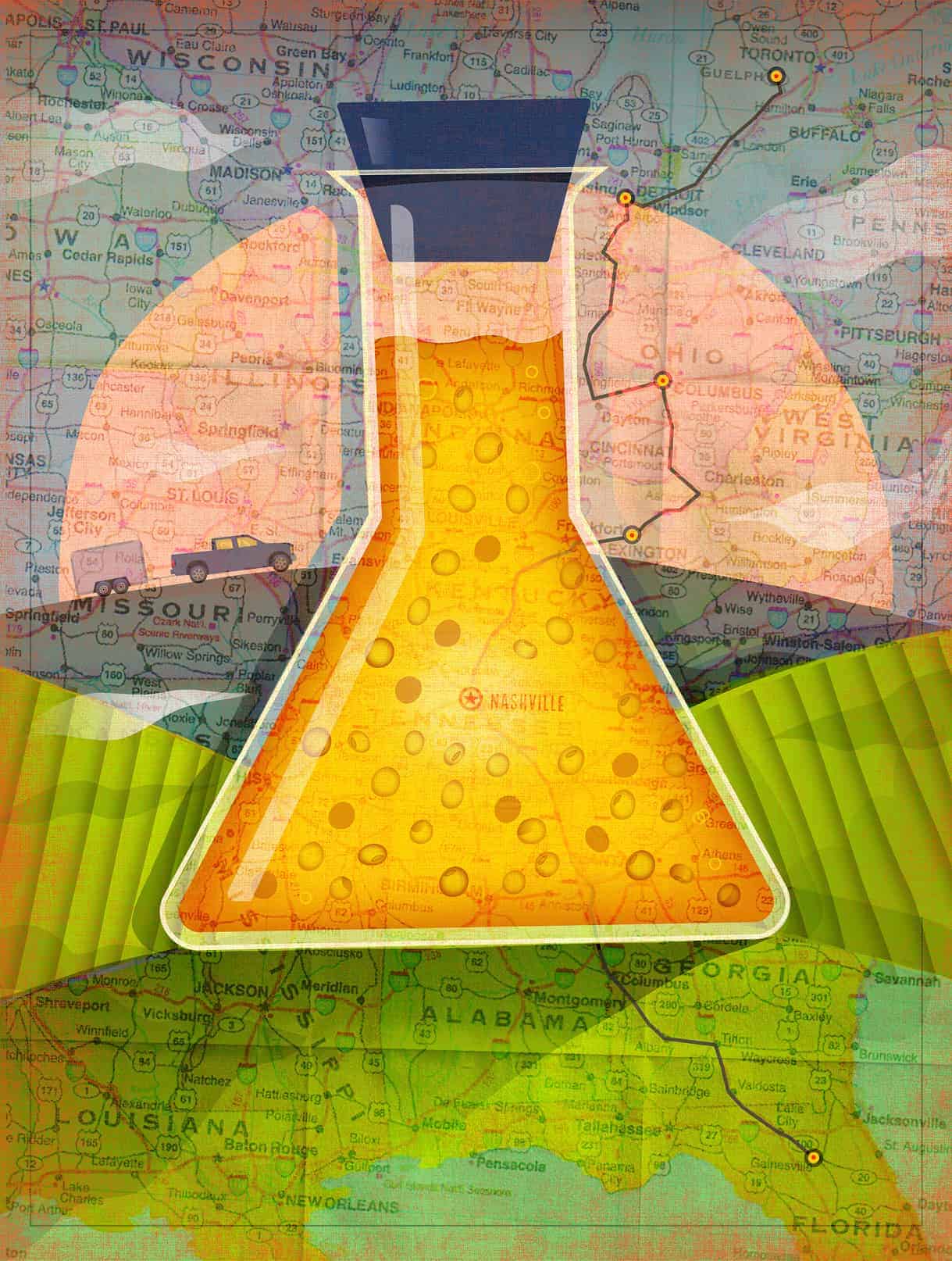
Illustration by Rocco Baviera
What’s learned in the classroom is then put into action next door in the program’s laboratory, which is strewn with an assortment of pieces and parts: biodiesel-, solar- and ethanol-powered go-karts, fuel pumps, processors, portable solar panels, auto motors, tabletop canisters with protruding tubes, and a stripped-down, economy-size red car that actually runs on renewable hydrogen. This renewable playland is dominated by a bold sign high overhead reminding students to “Think Safety.”
“Originally, before I joined the program, I heard they had go-karts, and I was real excited,” says junior and Chapter Vice President Allen England. “Not only did I get to build go-karts, but I also learned more about alternative energy and life lessons. I feel like we’re making changes. It’s great.”
On the Road
Whites Creek is all about sharing the knowledge of alternative energy with others.
Every October, the chapter exhibits an alternative energy education booth at the state and national FFA conventions, where the members teach more than 60,000 students about alternative energy and feature their hydrogen tractor.
Last year, the chapter notched a first-place win in the national Ford STEM Community Challenge. Powered by its $10,000 winnings and the chapter’s F-250 truck fueled with biodiesel from the chapter’s soybeans, a small group of students took their mobile lab, which is housed in a 24-foot enclosed trailer, on the road. The more than 2,000-mile, nine-day trip across the United States and Canada brought FFA members face-to-face with students in 17 high schools, colleges and universities.
“It brought us as close as a family,” Dr. Gibson says. “We are a close-knit group here, particularly the kids in FFA. It’s awesome when we take these kids out and they start talking about all this stuff and they have this lab. It just blows everyone’s minds.”
A highlight of the trip included a visit to the University of Florida, where FFA members taught two different classes of future agriculture teachers about alternative energy. The thought of high school students teaching teachers was a little scary at first.
“Is this really happening?” laughs sophomore and Chapter President Rachel Rhea. “We did awesome, though. The teachers were intrigued by what we had to say and were picking our brains for information. They were very engaged.”
For Dr. Gibson, it’s part of the plan.
“Having the kids teach raises the education to a higher level,” he says. “It’s way out of the box. As a teacher, they have to learn it and learn it well. The students do an excellent job when they get out there. Our students become the teachers.”
True Success
In 2017, the chapter again won the national Ford STEM Community Challenge, but this time it received $20,000. The chapter will use the money to build a 40-panel solar farm, convert a tractor and truck to run on hydrogen, and build a hydrogen reactor to make its own hydrogen as an alternative energy fuel. In June, the six chapter officers drove the mobile lab to Ford’s corporate headquarters in Michigan to discuss the chapter’s success with alternative fuels with Ford executives from around the world.
In addition, the program has won many state and national awards and garnered recognition. Successful Farming magazine recognized Whites Creek as one of three high schools in the United States that is shifting its focus with the changing landscape of agriculture. It also won the Governor’s Environmental Award in 2015.
Winning awards aside, the true success of the program is measured by the lives transformed. Four students graduated from the program in 2016; all four are now at Tennessee State University majoring in agriculture. College freshman Shakarah Nelson is one of those graduates new to the world of alternative energy and FFA, thanks to Dr. Gibson.
“Dr. Gibson – we call him our dad. He saw potential in all of us that no one else could,” Nelson says.
“When I see all of my kids doing these successful things,” Dr. Gibson reflects, “sometimes I just stop and say, ‘Thank you, God, for making me a teacher.’ ”
Did You Know?
Alternative energy is one of the fastest-growing industries – and one that will shape the future. Are you interested? Here are a few careers to consider:
Energy Sales Specialist »
Generates fuel sales in an assigned territory through a variety of methods, including target marketing, competitive analysis and providing value-added energy products, services and recommendations.
Biorefining Manager »
Converts biomass into fuels, power and chemicals to create more sustainable solutions to fuel our planet.
Climate Change Analyst »
Looks at research and data to predict future climate and recommend environmental practices.
Wind Substation Technician »
Performs installation, maintenance and testing of wind-energy collection sites where the power from the turbines is gathered.
Ethanol Engineer »
Helps an ethanol plant with cost-saving projects, such as energy reclaim/reduction, yield optimization and chemical- usage reduction.
Wind Turbine Technician »
Installs, maintains and repairs wind turbines.
This article originally appeared in the Fall 2017 edition of FFA New Horizons magazine.

